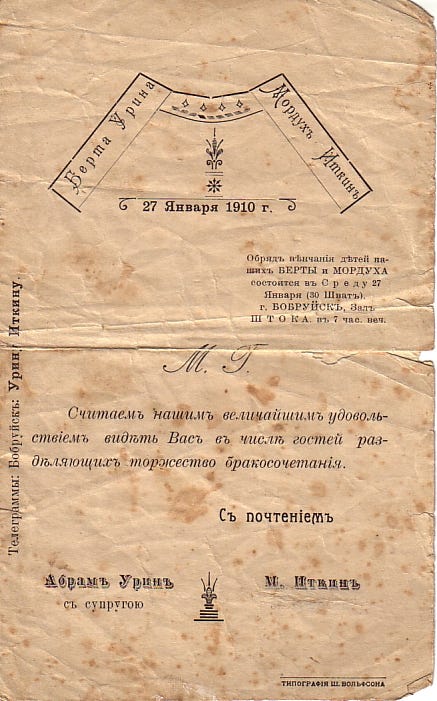An afterthought on the letters from the Schneerson Sisters
Because in the end, we are Russian people
On the subject of the Full Text of Musia's letter to Nacha Rivkin.
It doesn’t feel good to publish these letters. The renowned Yiddish writer Sholem Aleichem says they are “eye-opening”. They are also embarrassing. I wrote things that are stupid five years ago, perhaps yesterday or this very moment, but I don’t have a multitude of children named after me.
The “Jewish Russian Princess” (JRP) fortunately did not have many opportunities to grow then. But let’s go slowly. The sisters were probably the most religious women of their generation from the Schnnerson family, please think about this for a moment. And now step by step.
Musia spends the first two pages being hyper sensitive about causing some imaginary upset to Nacha. She was 27, but the style of the letter feels like she is 15. I am a very late bloomer too. But people are so self-centered to think that everything is about them. Hyper insecure as how I would describe it. In the eternal words Don Draper: “I am not thinking about you at all.”
There is not a reference to anything Jewish or God on the four pages, weeks before the wedding.
Musia keeps calling her wedding “венчание”, look it up. I have never heard Jews referring to a wedding with this word. Even assimilated Jews.1
I am nostalgia itself. But her father allegedly got arrested and threatened with death. The communist revolution made its intentions clear. The pogroms were eight years ago. Missing Russia so badly that you what to “walk back there”?
Now imagine yourself as Rayatz that needs to marry off his three daughters with no frum Schneersons left?
Now imagine yourself as the Rebbe who probably never in his life came home to the proverbial Russian bowl of hot soup instead of nagging. Yes, he was in Love, can you ask for more?
And this game the sisters play with calling everyone with their Russian monikers. “Mikhail Lvovich”, whoever thought of this? When I was in Russia, English, Hebrew was cool. Maybe they were in reverse?
Musia spends unusually little time talking about the groom and the wedding, we will just write it off to modesty and privacy, not her feelings about both.
But we have to mention the happiness about keeping her name as an early feminist streak.
The only Yiddish reference is a paraphrase of a quip by Rabbi Rivkin.
I don’t know if Musia can decide where she wants to be more in Berlin or Russia, what an ominous choice.
In conclusions, I would like to mention how unfavorably Muisa Schneerson compares to Nacha Rivkin. On one hand, there is a woman who built pioneering schools, published books and music. Engaged in the communal life heroically. On the other hand, someone who was a recluse accomplished in visiting the New York Public Library. Never “giving back to the community” that needed and supported her for a century. Sorry to be so harsh but this is how I see it.
P.S. How do you wrap your head around the fact that Muisa Schneerson who was financially supported by the same people she called with disdain in Russian шпана “hooligans”, the chassidim who would knock their gold teeth out, so they can pay maamad, while Musia only wanted to run away from them as far as possible? And now the same people fall all over themselves to name their firstborn after her. How does this work, please someone tell me? And they insist on calling their daughters with the name Musia or people around her never used in RL.
I am told that before revolution Jews used this word exactly
“венчание”:




It's always good to show hakoras hatov....
I am SURE many people read these posts and are fascinated, I definitely am. Please continue to post your amazing research. Many of us greatly appreciate it.
Was not Repka family frummer?